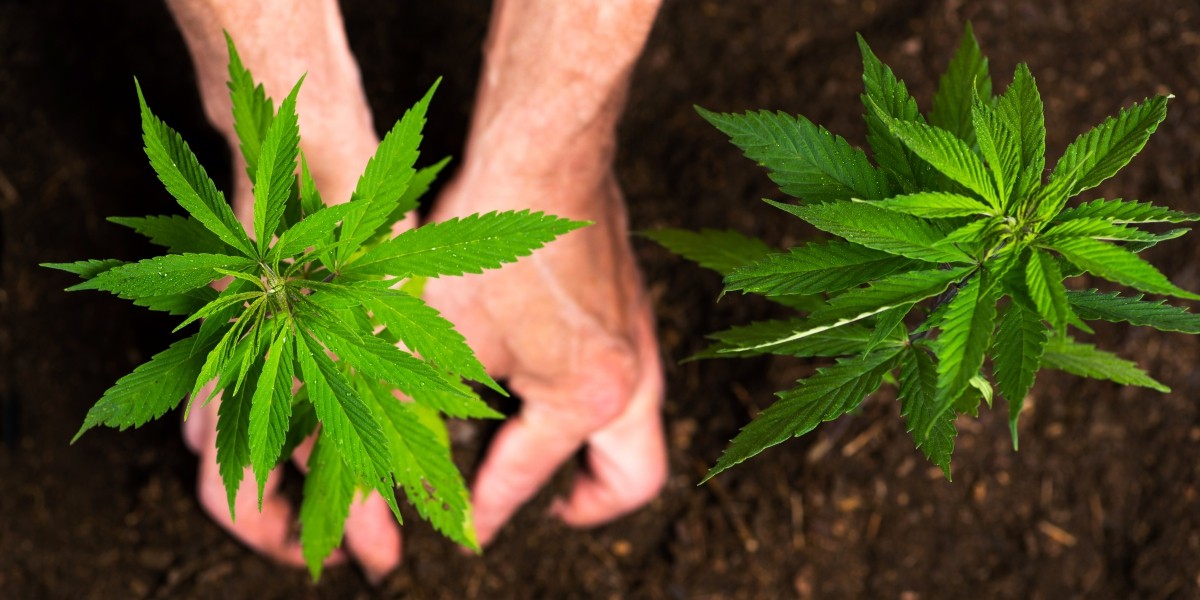4 Things to Avoid When Growing Hemp

Cultivating nearly any plant will come with its own unique challenges, whether it’s tomatoes, wheat, corn, or hemp. Home gardeners and seasoned farmers need to be aware of soil health, watering plans, fertilizers, genetics, transplant or direct seed, and more. Hemp specifically is a challenging crop to grow given that there is steep competition and strict regulations that need to be followed from seed to harvest.
If you’re considering growing hemp, whether it’s for personal use or for resale, there is undoubtedly a lot of research that needs to be done in order to fully understand how to care for and tend your crop. But the good news is that there are plenty of experts out there who have been through the process before and have learned through the various challenges that occur.
At Gonzo Farms, we are passionate about natural farming and helping small-scale farmers or commercial operations ensure that their product is high-quality and will have a high return on investment. Our team has more than 15 years of combined experience and we have developed one of the best organic fertilizers that give hemp what it needs to produce a superior end-product.
As you’re planning your hemp crop this growing season, keep these common things to avoid in mind.
Thinking From Start to Finish
When you’re getting ready to start growing hemp, it’s easy to get caught thinking about when to put the seed or transplants in the ground, when and how much to water, or how much fertilizer to give it and when. And while these are important factors that will need to be considered, it’s not what farmers should be thinking about first. Before planning plant spacing or irrigation strategy, think about the end-product. Who are you selling it to, what is the purpose of the crop, how is the crop harvested and handled? These factors will influence the decisions you make from the start and will help inform you along the way to ensure your product has resale value.
Not Creating a Water Plan
Whatever crop you’re growing needs a solid water plan, and it’s more than just irrigation equipment. Depending on the size of your operation, you’ll need a lot of water to ensure that the crop is nourished throughout its life. If your operation is large enough, it may be challenging to acquire that amount of water. And no farmer wants to find that there isn’t enough water halfway through the growing season. A seasoned farmer may consider this point as common knowledge, but for beginner or small-scale farmers, it may be an important factor that gets overlooked.
Lab Reports and Testing
There is a lot of research that needs to be done before any planting even begins. Spend some time talking to experts about seeds and clones, and what benefits and downsides each variety has. When considering what seeds or clones to purchase, be sure to analyze multiple lab reports and after you have purchased a product, conduct testing on your own through a lab that you trust. You will also want to consider testing when the plant has come up as well as at different stages of the plant’s life. The more information you have about where a variety came from, the quality of the seed, the genetic makeup of the seed, and the THC-to-CBD ratio, the better.
Growing a Hot Crop
There’s nothing more devastating to new hemp growers than finding out that their crop tested over 0.3% THC – known as a “hot” crop. The crop will need to be destroyed and thousands of dollars, time, and effort will be lost. Understanding what can cause a crop to grow hot (drought, flooding, altitude, too few or not enough nutrients, heat, cold) and how to avoid it may be one of the most challenging aspects of growing hemp. So how can you prevent your hemp from growing hot?
- Choose the Right Cultivar: While there is still ongoing research, there are known cultivars that have consistently grown and tested below 0.3%. This goes back to doing your research well before the growing season begins. It is essential that farmers select seeds from reputable sources and have the lab reports to back up their product.
- Pay Attention to the Soil: Healthy soil with the right nutrients is a key factor in how a plant develops and the chemical makeup of the plant. With the right organic fertilizer, the plant will be able to absorb nutrients that are essential for healthy growth and to prevent the production of THC.
- Harvest Early: As a hemp plant grows, the levels of cannabinoids increase. This is why it’s so important for a farmer to conduct testing on their own at various intervals throughout the growing season. This allows growers to harvest the crop before the plants exceed 0.3% THC.
Growing hemp is challenging, but definitely not impossible and absolutely not without its rewards. However, it does require diligence, research, knowledge, and the right growing conditions. At Gonzo Farms, we are organic fertilizer suppliers who are committed to helping home gardeners and farmers achieve successful crops. We believe our fertilizer formulas are designed to give hemp what it needs to flourish. We offer products that promote healthy roots, increased flower and bud formation, and fill the soil with essential nutrients for increased soil fertility. When there are plenty of things to worry about when growing hemp, including buyer contracts, water plans, lab tests, and more, you can be sure that your soil and plants are healthy with organic fertilizers from Gonzo Farms. Shop our fertilizers today!

